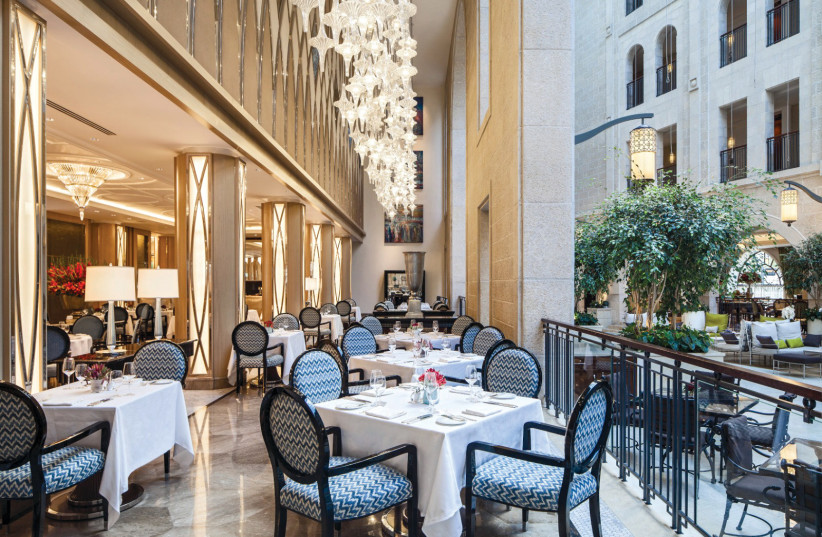Teams from the coalition and opposition parties Yesh Atid and National Unity held their first marathon negotiating session over the content of the government’s judicial reform on Monday at the Waldorf Astoria Hotel in Jerusalem.
The session, which lasted for approximately six hours, focused on Basic Law: The Judiciary and on the method of selecting judges, according to a statement by the President’s Office.
The talks were held in a “positive, professional and serious atmosphere,” and the sides were “committed to continuing the negotiation process in order to arrive at an agreement.” Another session will be held on Tuesday and will focus on Basic Law: The Legislature, according to the statement.
The members of the negotiating teams as well as the President’s Office remained tight-lipped about the content of the meetings and the proposals that were laid on the table.
The talks were held at the Waldorf Astoria instead of the President’s Residence, reportedly because the latter is being prepared for Independence Day events.

What did the judicial reform negotiations discuss?
Previous talks between the sides focused on the framework for the talks themselves. While legal experts met during Passover to map out the central areas of disagreement, Monday was the first time politicians from both sides sat down to discuss the actual content.
Yesh Atid and National Unity said in a joint statement after the meeting that their teams “stressed the need to arrive at broad agreements while maintaining all of the democratic principles, upon which we will not compromise.”
“We will continue to do everything possible to arrive at constitutive legislation that will strengthen Israeli democracy and the State of Israel,” the two opposition parties said.
A member of the Likud team, MK Hanoch Milwidsky, wrote on Twitter that the “optimism that I expressed after the previous discussion, believe it or not, still exists. There is a lot to work on, but there are also those to work with.”
"The optimism that I expressed after the previous discussion, believe it or not – still exists. There is a lot to work on, but there are also those to work with."
Hanoch Milwidsky
The Labor Party announced on Sunday morning that its negotiation team was dropping out of the talks, citing reports of backroom discussions being conducted without their involvement.
Another opposition party, Yisrael Beytenu, refused to participate in the talks from the outset. Party chairman MK Avigdor Liberman reiterated his position on Saturday that the talks were a “scam” intended to dissolve protests, which have been ongoing for more than three months.
